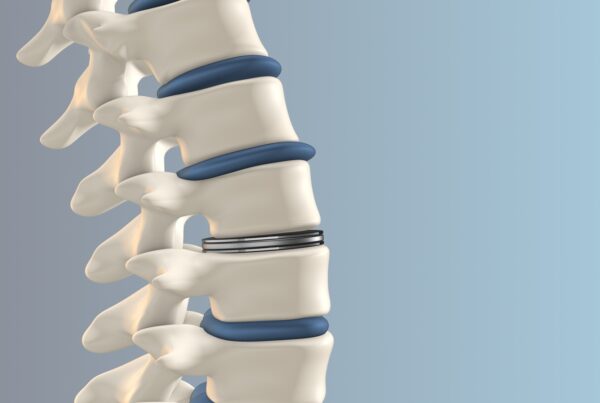Living with persistent back pain after trying conservative treatments can be both physically and emotionally draining. If you’re considering surgical intervention, you probably have one pressing question: How successful is spine surgery? The answer varies based on several key factors, including the specific procedure, your unique health profile, and perhaps most importantly, your surgeon’s expertise.
Beyond the Basics: What Spine Surgery Actually Involves
Spine surgery encompasses procedures designed to correct spinal problems, relieve pain, and improve function. Common reasons patients visit our New Jersey practice include degenerative disc disease, herniated discs, spinal stenosis, scoliosis, fractures, and infections. When they don’t respond to non-surgical treatments, these conditions can cause debilitating pain and dramatically impact quality of life.
The Keys to Surgical Success: What Really Matters
Wondering what determines whether spine surgery works? Your results depend on several key factors, from the specific procedure and your overall health to the skill of your surgeon. Let’s break down what really makes a difference.
Finding Your Surgical Match
Different spine procedures have varying success rates based on their complexity and the condition being treated:
- Spinal Fusion: Often recommended for conditions like spinal instability, degenerative disc disease, or severe scoliosis, this procedure stabilizes the spine by permanently joining two or more vertebrae using bone grafts, screws, and rods.
- Discectomy: Removes herniated disc material to relieve pressure on spinal nerves.
- Laminectomy: Creates more space for the spinal cord or nerves by removing part of the vertebra.
Your Body, Your Results
Your health profile plays a significant role in determining your surgical outcome:
- Age: While not a barrier to successful surgery, biological age can influence healing capacity and recovery timelines.
- Overall health: Conditions like diabetes, cardiovascular issues, or osteoporosis may affect recovery.
- Smoking status: Non-smokers typically experience better fusion rates and faster healing than smokers.
- Bone quality: Strong, healthy bones provide better hardware support and improve fusion success.
Expertise You Can Trust: Your Surgeon Matters
At Neurosurgeons of New Jersey, our board-certified, fellowship-trained specialists bring cutting-edge treatments and the latest technologies to every case, with an emphasis on minimally invasive techniques to deliver precision care. Our team’s Ivy League training ensures patients receive expertise grounded in the highest standards of academic medicine.
Spine Surgery Success Rates: What to Actually Expect
| Procedure | Purpose | Success Rate | Recovery Considerations |
| Spinal Fusion | Stabilize the spine by fusing two or more vertebrae | 70%–90% overall success.
ACDF procedures: • 93%–100% arm pain relief • 73%–83% neck pain relief |
Vertebrae typically fuse in 3–12 months. Following post-op instructions is essential for optimal healing. |
| Discectomy | Remove herniated disc material to relieve nerve pressure | 80%–90% of patients experience significant relief from leg pain (sciatica) | Recovery is generally faster than fusion. Most patients return to light activity within a few weeks. |
| Laminectomy | Remove part of the vertebra to decompress the spinal cord or spinal nerves | 70%–80% of patients report symptom relief | Recovery depends on the procedure’s extent and whether it’s combined with fusion. |
It's time to get back
to doing what you love.
“Dr. Estin reviewed my MRIs, answered all of my questions, and put me at ease. He performed my disc surgery, which went well, and pain relief was almost instant. I am so grateful for his approach and my return to health.” – Recent NJ Spine Patient
Lumbar Surgery Success: Why Lower Back Results Matter Most
The success rate of lumbar spine surgery is significant since lower back issues are among the most common spinal problems. For appropriate candidates, success rates for lumbar spine surgery typically range from 70% to 90%. The success rate of lumbar spine surgery depends on accurate diagnosis, your unique health considerations, and expert surgical technique.
Patients whose symptoms can be traced to a visible spinal issue, such as a herniated disc compressing a nerve, tend to experience the most significant improvement. These objective findings make it easier to target the root cause during surgery. For example, people with leg pain caused by a visible herniated disc typically have better outcomes than those with general back pain that can’t be linked to a specific structural issue.
After Surgery: The Road to Recovery
While spine surgery offers promising results for many patients, understanding what happens during recovery helps you prepare realistically:
Pain’s Natural Timeline
Post-surgical pain is possible, but manageable. Most patients experience the most discomfort within the first few days, which gradually eases as the healing process begins. Your care team will provide pain management strategies to make you comfortable. This pain gradually improves as your body heals, though the timeline varies from person to person.
Your Muscles’ New Normal
Following surgery, the muscles surrounding your spine may feel unusually stiff or weak as they adjust to their new role in supporting your spine. Physical therapy is crucial during this phase, helping you safely rebuild strength and flexibility while respecting your body’s healing process.
Moving Forward
While some procedures naturally reduce movement in specific segments of your spine, many patients find that their overall mobility actually improves once they’ve recovered because they’re no longer limited by severe pain. Your physical therapist will work with you to maximize mobility in the unaffected segments of your spine, helping you maintain an active lifestyle.
Why Second Opinions Matter
Before proceeding with spine surgery, seeking a second opinion can provide valuable perspective:
- Confirming Diagnosis: Ensures the accuracy of the initial diagnosis
- Exploring Treatment Options: Discusses alternative or less invasive treatments
- Finding the Right Specialist: Identifies neurosurgeons specializing in your specific condition
The NJ Difference: Expertise That Shows in Outcomes
The expertise of your surgical team significantly impacts your results. When selecting a spine surgeon, consider their:
- Specialization in Spinal Surgery: Look for surgeons who focus specifically on spinal procedures
- Advanced Surgical Techniques: Seek those who use the latest minimally invasive methods when appropriate
- Comprehensive Approach: The best surgical teams provide thorough pre- and post-operative care
At Neurosurgeons of New Jersey, our board-certified, fellowship-trained specialists bring Ivy League-level expertise to every case. With training from Columbia and NYU and a focus on minimally invasive techniques, we deliver precision care that supports optimal outcomes. Located just 10 minutes from New York City, we offer world-class expertise with the convenience and accessibility of suburban care.
Your Next Steps Toward Relief
When considering spine surgery, remember these key points:
- Spine surgery success rates vary by procedure and individual factors
- Choosing an experienced surgical team is crucial
- Following post-operative guidelines significantly impacts outcomes
- A comprehensive approach to care, before, during, and after surgery, maximizes your chances of success
Take the first step toward relief by requesting a consultation with our specialized spine team today. Whether you prefer an in-person visit or a telehealth appointment, we’re committed to providing clarity and guidance throughout your surgical journey.
Dr. Anthony Conte, MD
Dr. David Estin, MD, FACS
Dr. Christopher Gillis, MD, FRCSC, FAANS
Dr. Jonathan H. Lustgarten, MD
Dr. Ty J. Olson, MD, FACS

About Eatontown
Our team of board certified physicians, located in Eatontown, New Jersey, are dedicated to bringing you the latest developments and treatment options for spinal surgery. We strive to produce the most clarified & clear content to help you make informed decisions on your medical journey. The road to feeling like your true self should not feel lonely- Let us help you. Please call us to schedule a consultation and speak to one of our team members.






